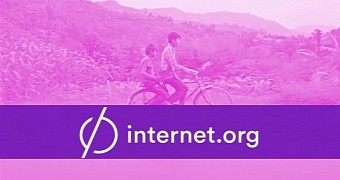Facebook came forward to address some of the ill-natured rumors that have been circulating about the partnership the company has concluded with mobile companies in order to bring free Internet to the two-thirds of people who cannot afford it.
After facing harsh critics from net neutrality activists claiming that the project violates the principles of an open Internet, Facebook considered it was high time to address the issue once and for all and show the detractors where they are wrong.
By announcing some of the allegations that have been spreading regarding the platform and providing what they claim to be the true facts lying at the foundation of the Internet.org initiative, the company hopes to provide people and users a clearer picture of why they came up with this idea and how they use it to help underprivileged people.
Facebook demystifies Internet.org
One such myth that Facebook felt the need to address is the claim that Internet.org is a "walled garden," a theory which has made headlines recently, in relation to the fact that through this partnership with mobile companies, Facebook intends to control people’s access to Internet content and services.
The company rebuffs such accusations, especially in view of the recent opening to developers which will allow users to choose from a wider variety of apps and products. They also denied the fact that they are forcing people into thinking that Facebook represents the entire Internet, given that recent cases of Internet.org users who took the social networking site for the web have resurfaced, making people condemn the initiators of the campaign for tricking people into believing such nonsense.
And as if CEO Mark Zuckerberg had not emphasized this idea one too many times already, the article reinforces the fact that Internet.org acts in accordance with network neutrality and that it follows the principles as they have been laid out, "Facebook supports net neutrality and has worked throughout the world to ensure that services can't be blocked or throttled and to ensure that fast lanes are prohibited."
The company also dismissed the myth that they have come up with the campaign solely for the money that they are hoping to gain off it, by announcing that people involved in Internet.org will most likely see ads on the page just like the rest of the world given that mobile companies have contracts with marketers. In other words, it is not an issue that the company alone can control.
Facebook also approached a more delicate topic, that of data protection for users. They admitted that Internet.org does receive some personal information, although they omitted what exactly this refers to, but they say that people are made aware of the data they will be giving away before having them sign up for the project.
Although it is very unlikely that people who have never heard of the Internet before will be able to fully understand what kind of data they are willingly giving Facebook access to and how the giant corporation can make use of it.

 14 DAY TRIAL //
14 DAY TRIAL //